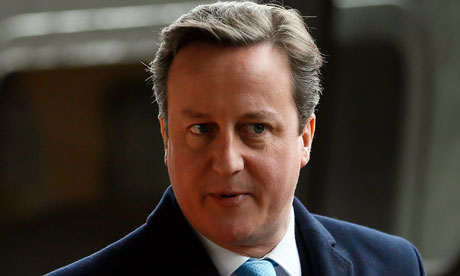David Cameron is to fly to Algeria on Wednesday for talks with the Algerian political leadership in the wake of the jihadist assault of the In Amenas gas plant that led to the killing of 37 foreigners, including five Britons.
Relations between Cameron and the Algerian prime minister, Abdelmalek Sellal, became extremely tense after the Algerians went ahead with a military attack on the plant without consulting other governments, in breach of what the British regarded as an undertaking.
Britain and other nations had pressed for a peaceful resolution to the hostage crisis. The Algerian government rejected almost all offers of foreign help.
Cameron dampened his criticisms once the scale of the jihadist assault – and the lack of good options to end it – became clear. Sellal has said Algerian special forces tried to negotiate but once the militants spelt out their demands, including the release of Afghan terrorists, a deal became impossible.
In their talks on Wednesday Cameron is likely to want to repair any damaged relations and discuss future terrorist threats to British-owned energy installations in north Africa.
Cameron has said British foreign policy has for too long ignored north Africa, leaving the region largely as the sole preserve of the French. He is likely to test the Algerian government's willingness to countenance greater intelligence sharing, including the deployment of US drones.
The Algerian government has been unapologetic about its handling of the attack, pointing out that 32 heavily armed militants from seven African countries and Canada drove into Algeria from northern Mali, probably via Libya. They twice attempted to take hostages to Mali, and later tried to blow up the gas plant.
Their weapons appeared to have come from Libyan stockpiles released when Muammar Gaddafi was toppled. The raid on the oil plant was thought to have been in preparation for as long as two months, and has been billed as the start of a series of attacks in north Africa in protest at the French military action in Mali.
The gas plant is owned by BP, Norway's Statoil and the Algerian state oil and gas company Sonatrach. It supplied 11% of Algeria's gas output, and remains closed.
Cameron is also likely to talk to Sellal about improving vetting of staff at foreign-owned plants. There is suspicion that the In Amenas attackers had inside knowledge.
Algerian security services have begun a thorough check to locate support networks for the attackers, with 11 employees so far accused of complicity – four security guards working for BP, five officials of Sonatrach and two people working for the Japanese energy group JJC.
There had been warnings that al-Qaida in the Islamic Magreb (AQIM) was short of funds and likely to resort to ransoms and kidnapping of energy workers. The Algerian government has promised to step up the already high levels of security surrounding such plants.
At a press conference on Monday, Sellal asserted his country's commitment to fighting terrorism. "We will never accept a Sahelistan on our borders," he said. "The whole world has understood that the reaction was courageous. Algerians are not people who sell themselves out. When the country is at stake, there is no possible discussion."

No comments:
Post a Comment